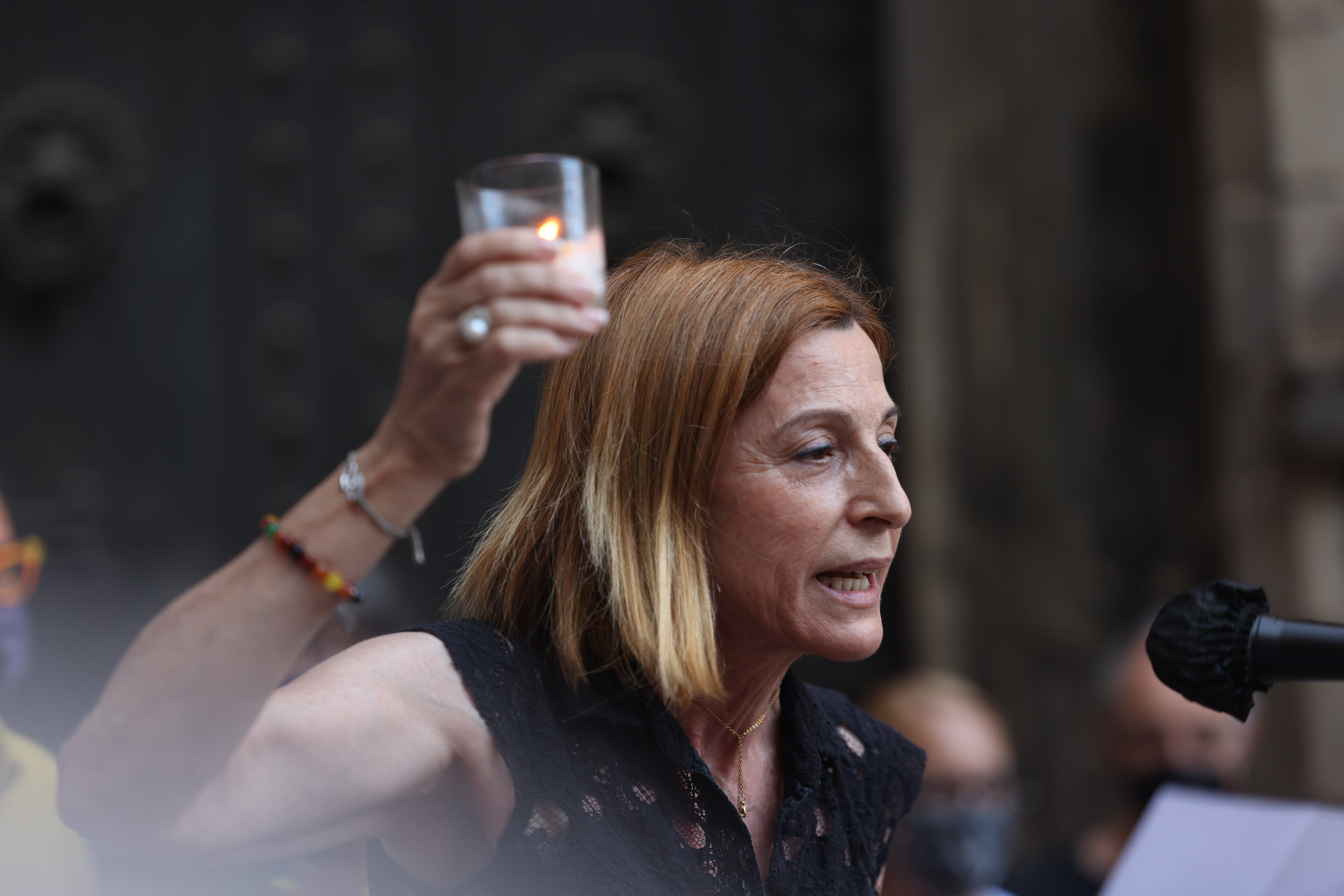Spain's Constitutional Court has rejected the appeal presented by the former speaker of the Catalan Parliament, Carme Forcadell, against the jail sentence of 11 years and 6 months for a crime of sedition that she received in the trial of the Catalan pro-independence leaders. The Spanish state's highest court of appeal considers that her action of initiating and continuing with the constituent process is not protected by the inviolability of her office as speaker. After the decision on the appeal was made public last week, the Constitutional Court has today released its full sentence.
The sentence document, more than 400 pages long and drafted by spokesperson judge Ricardo Enríquez, contains the dissenting opinions of two judges who see the sentence as disproportionate, but the majority of the full court reject Forcadell's appeal and emphasizes that her action "was part of an agreed strategy" coordinated with the other convicted Catalan leaders.
The two judges who consider the Supreme Court's eleven and a half year sentence of the ex-speaker to be "disproportionate" are Juan Antonio Xiol and María Luisa Balaguer, who have presented a separate opinion - as they did in the cases of the other four convicted Catalan leaders whose appeals have already been considered by the court. Unlike the majority of the Constitutional judges, who voted to dismiss Forcadell's appeal against the conviction, Xiol and Balaguer do not see it as proportionate to have convicted Forcadell of sedition for having allowed the admission, debate and voting of two proposed laws to regulate Catalonia's disconnection from Spain after a referendum vote in favour of independence. The two justices believe Forcadell "exceeded her powers", but warn of the "devastating effect of discouragement" that the sentence has on the right to political representation.
For these two judges, the defendant's actions could be considered “as disobedience of the Constitutional Court” or even “for their inclusion in the crime of sedition,” but not as justification for the sentence imposed. The two judges believe that Forcadell's actions "were not sufficient to consummate the level of criminal action allegedly coordinated with the other people convicted for this crime." "It also had to coincide with the majority vote by the members of the Bureau and the Catalan Parliament, which was outside her control and parliamentary functions", they remark.
Xiol and Balaguer believe that the prerogative of inviolability due to her office could not be applied to Forcadell, but that a proportionate sentence had to be imposed. The dissenting opinion argues that the "higher level of protection against any interference" which necessarily must surround the office of Speaker of Parliament was not given its proper weighting and warns of a potential "discouraging effect" on the exercising of the right to political representation. The two judges consider that the Catalan speaker "exceeded her functions" in the exercise of this right and that her conduct had a "criminally importance" and there was "seriousness" in the actions involved, but that "the penalties must be appropriate for the gravity of the infractions that are punished".
The court majority view
The majority of the judges, however, endorse the Supreme Court decision. The justices put stress on the fact that the former Catalan speaker abandoned "the exercise of her constitutional and statutory functions" and that this means that her decisions were not protected by parliamentary inviolability.
The court majority declares that Forcadell's actions, "failing to comply with and consummately neglecting the pronouncements, warnings and requirements given by this court", promoted "the admission, debate and voting in the Catalan chamber of parliamentary initiatives that, avoiding the procedures for constitutional reform, were intended to serve as support and give continuity to a political project of separation of the autonomous community of Catalonia from Spain and the creation of an independent Catalan state in the form of Republic, initiating the so-called constituent process."
The court also emphasizes that Forcadell's parliamentary action assisted the Catalan Parliament in situating itself in "a position of separation from the constitutional order, by acting as a mere de facto power, absolutely outside the law and, therefore, explicitly renouncing the exercise of its own constitutional and statutory functions".
"The legitimate exercise of these functions is an assumption for the protection that parliamentary inviolability provides to members of the chamber," said the court decision, adding that this is why Carme Forcadell's actions, "which have served to support the decisions taken by the chamber, are not protected by parliamentary inviolability, as they clearly deviate from the purpose of the prerogative”.
In addition, the resolution insists that the explicit repudiation by the Parliament of Catalonia of the binding nature of the Constitution and the Catalan Statute of Autonomy - which must preside over its actions - "deprived the decisions and acts thus adopted of any presumption of legitimacy and mean that those who promoted, admitted and approved them lacked any possibility of invoking the faculties and prerogatives associated with the exercise of the parliamentary function".

